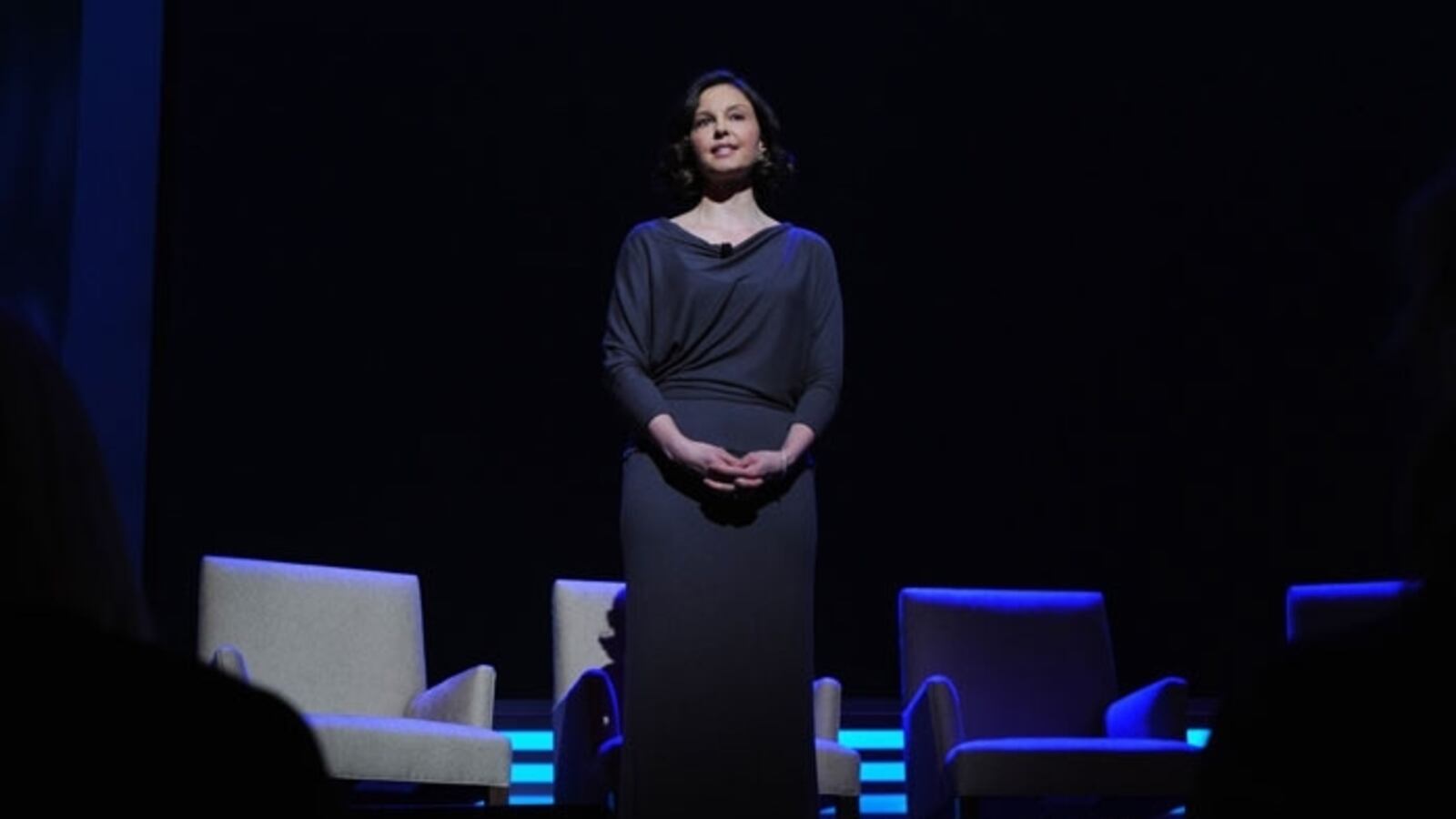Friday’s third session started with actress Ashley Judd delivering a powerful, if upsetting message about the child sex trade. “Who are these men who buy children for sex?” she asked the audience. “They are our fathers, our uncles. The guy who gets out of the taxi before you get in, the guy on the stair-master next to you.”

The session, “No Such Thing: Trafficking of Girls in the United States” was intented to dispel a common perception: that child sex trafficking is an issue limited to the third world. It worked. Panelists Malika Saada-Saar, founder of the anti-trafficking organization the Rebecca Project, Dr. Sharon Cooper, who studies the impact of sex slavery on the development of chidren’s brains, retired police sergeant Doug Justus, Judd, and moderator Hon. Jeanine Pirro, a former district attorney and current TV host, brought the message home with jarring statistics, and startling stories.Between 100,000 and 300,000 children—primarily girls between the ages of 12 and 14—are victims of the sex trade right here in the United States. But instead of being helped, they’re being prosecuted—arrested for prostitution, thrown in juvenile detention, vilified in the media as bad girls, instead of victims. It is, as Saada Saar said, “the only incidence of child abuse where we put the child behind bars.”

Trafficking is, of course, illegal, but police and prosecutors often perceive girls as “compliant victims,” and since the sex trade largely happens behind closed doors, there’s little impetus to go after it. The result? An astoundingly large-scale industry that hundreds of thousands of girls fall victim to every year, and precious few prosecutions. In 2009, just eight cases were prosecuted in New York City, one of America’s primary hubs. The combination of impunity and the anonymity provided by the internet has let the trade spin into epidemic proportions.Meanwhile, the girls and women who survive the trade go on to battle post traumatic stress disorder (which, according to Cooper, occurs at higher levels than that for veterans returning from Iraq), eating disorders, and dependency issues like substance abuse and alcoholism.According to Saada Saar, the first step towards a solution is in re-framing the issue. “These girls are not hookers,” she said. “They are victims of child rape. We have to name that. And then we have to stop putting them in the criminal justice system.” Noting that the Federal government doesn’t allot a single dollar to domestic victims of the sex trade, she emphasized the importance of both prosecuting johns and pimps, and of providing safe havens to survivors.
Judd introduced the panel with a heart-wrenching personal anecdote about a young woman who was forced into prostitution.
Last year, Saada Saar’s organization took a significant step. A group of girls who had been bought and sold over Craigslist came together and decided to write a letter to Craigslist founder Craig Newmark, detailing what had happened to them. They placed the letter in newspapers in San Francisco and Washington, D.C., and a month later, the site’s Adult Services section was shut down. “It’s a little like this summit,” Saada Saar said. “Because they were able to tell their stories, they created a solution.”





